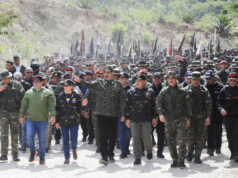“I wanted to see how India practices power as much as it talks about and engages in international diplomacy, particularly in its neighbourhood because this is a geography where Delhi can not only have positions politically and diplomatically but if required militarily and economically.”
Avinash Paliwal, author of India’s Near East: A New History, was on The Gist, talking about his latest book, that took six years to research and write. It brings together India’s northeast with Bangladesh and Myanmar.
“This is a region which is one of the most intricately partitioned lands … you have the partition of East Pakistan and of course the liberation of Bangladesh, the separation of Burma from India in 1937 which does not figure in big in public conversation but is a seismic event.”
But more than anything else, Paliwal sees the book as an exploration of India’s nation building, which is a domestic process, but by bringing in Bangladesh and Myanmar, also China and Pakistan, that are strategic drivers, the book is about how domestic politics and policies drive the neighbourhood agenda.
Paliwal notes that the northeast is handled by the Union Home Ministry but underscores that policymakers in Delhi see the linkages very clearly. In the Ministry of External Affairs, for instance, Bangladesh and Myanmar form one desk, so there is a lot of cross-pollination and team work.
“I think in the past few years, there’s been a push for a more regional agenda especially in the east … all these connectivity initiatives really become important in a policy sense. So the idea of Act East not Look East.”
He does not believe Act East is a huge change from Look East. The latter gave India room for manoeuvre while Act East is more activist, but this is a continuum not a strategic shift.
Recent agreements between Nepal, India and Bangladesh to transfer energy across all three countries shows that there are conversations happening that are not just bilateral, Paliwal argues.
He believes India has, rather late in the day, realised the importance of connectivity, and whether its Chittagong Port in Bangladesh or Sittwe Port in Myanmar, they are vital for the development of the northeastern states.
Tune in for more in this conversation with Avinash Paliwal of the School for Oriental & African Studies, London.
Thirty eight years in journalism, widely travelled, history buff with a preference for Old Monk Rum. Current interest/focus spans China, Technology and Trade. Recent reads: Steven Colls Directorate S and Alexander Frater's Chasing the Monsoon. Netflix/Prime video junkie. Loves animal videos on Facebook. Reluctant tweeter.




